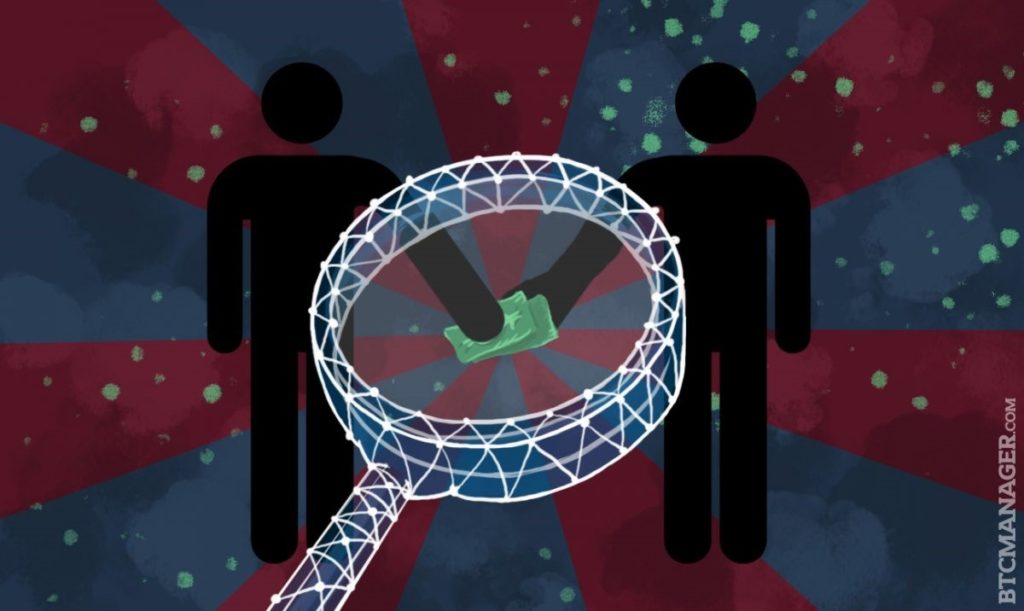Highlight 1/2021 – Blockchain, A Future Tool To Disrupt Corruption
Théophile Troude, 19 January 2021

Some of the main functions of government institutions include the redistribution of resources and the maintenance of official records. These large and convoluted organizational structures often lack transparency and are difficult and costly for an outsider to understand. For cause, governments are often gigantic knots of procedures, registers, transactions, and human bureaucrats who enact formal rules within the limits of their jurisdiction.
Therefore, civil servants who directly manage resource flows or who have signing authority may be encouraged to abuse their powers for monetary gain if they realize that the risk of getting caught is minimal. In 2018, the World Economic Forum said the global cost of corruption is at least $2.6 trillion, or 5 per cent of the global gross domestic product (GDP), adding that, according to the World Bank, businesses and individuals pay more than $1 trillion in bribery every year.
These issues are precisely the areas where blockchain technology is well positioned to have a strong impact. Blockchain is a system of recording information in a way that makes it difficult or impossible to change, hack, or cheat the system. A blockchain is essentially a digital ledger of transactions that is duplicated and distributed across the entire network of computer systems on the blockchain. Therefore, with a focus on facilitating secure and traceable transactions and keeping immutable records, Blockchain technology is particularly suited to ensure the authenticity of records and eliminate inefficient data management practices inherent in traditional bureaucracies. In doing so, blockchain based systems could help to restore deteriorating trust in government.
Three key uses of blockchain technology in the fight against government corruption emerge consistently across all expert accounts: transaction authentication, the register of official documents such as property rights, and identity verification. One of these potential avenues in the fight against administrative and political corruption is to make all public sector data open to everyone and thereby improve transparency by letting organizations conduct independent audits and spot suspicious trends in public spending.
Another approach would be to reduce the scope of corruption opportunities by bringing most government services online. In this area, blockchains could be used to facilitate transparent and tamper-proof transactions of data. This would be an effective way to avoid the tendencies of fraud, as is particularly the case in centralized electoral systems.
Many government entities such as the United Kingdom, Estonia, Honduras, Denmark, Australia, Singapore, and others have taken steps to unleash the potential of Blockchain technology. Dubai Government is aiming to become paperless by adopting the Blockchain technology for all transactions by 2021. But even though the Blockchain technology is an emerging technology that is attracting government attention, there will be many limitations to overcome before its implementation. Experts from a think tank at the Norwegian research institute U4, echo this assessment in a 2020 report, stating: “Blockchain is designed to work in environments where trust in data and code is greater than trust in individuals or institutions.” Blockchain technology itself cannot solve frauds. Countries with nonexistent, incomplete, or incorrect registries systems need to go through the difficult process of gathering, cleaning, and digitizing this information before a blockchain-based registry can function.
Nonetheless, blockchain presents valuable qualities, particularly related to tamper-evident and permanent databases and record-keeping, that could enhance transparency, accountability, and citizen engagement in areas that materially impact democratic governance and sustainable development around the world.
Théophile TROUDE, Blockchain, A Future Tool To Disrupt Corruption, Highlight 1/2021, available at www.meig.ch
The views expressed in the MEIG Highlights are personal to the author and neither reflect the positions of the MEIG Programme nor those of the University of Geneva.
